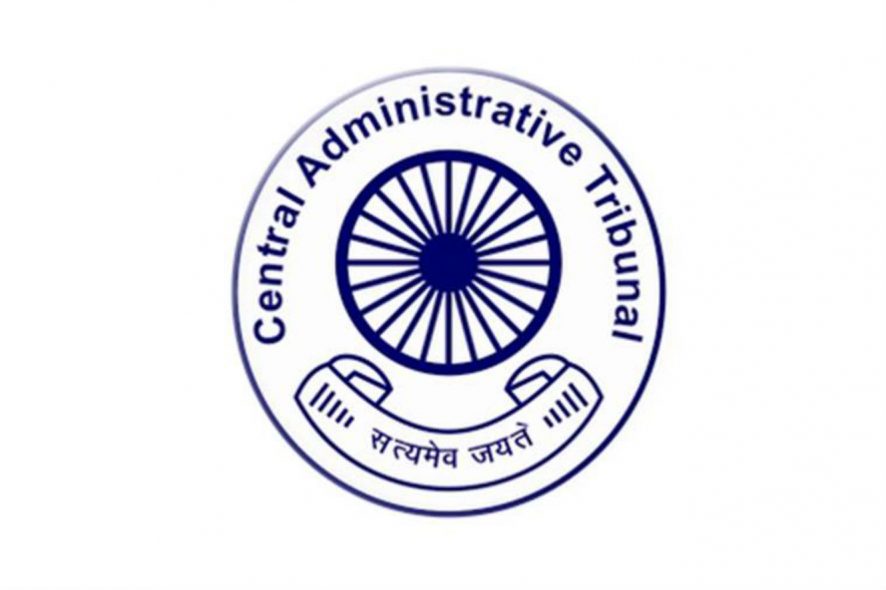Central Administrative Tribunal (CAT): The Bench of Justice L. Narasimha Reddy (Chairman) and Mohd. Jamshed (Member) held that premature retirement does not amount to punishment rather in the instant case it was a measure to add efficiency and honesty in the departments.
The applicant joined the Municipal Corporation of Delhi as Junior Engineer (JE) (Civil) in the year 1988. Thereafter, he was promoted to the post of Assistant Engineer (AE) (Civil) on ad hoc basis with effect from 13-09-2018. Through an order dated 31-10-2019, the respondents retired the applicant, by invoking the power under Fundamental Rule (FR) 56 (j) and Rule 48 of the CCS (Pension) Rules, 1972, before the latter attained the age of superannuation and the representation made by the applicant was rejected.
The applicant contended that he rendered meritorious service ever since he was appointed and in recognition of the same, he was assigned additional charge of various important posts. He further contended that though he had been issued number of charge sheets, he was exonerated in most of them. Further, it was argued by the applicant that his ACRs for 31 years were not only Very Good, but also Outstanding in certain years, and that he was not involved in any departmental case in which any penalty was imposed, after his promotion in 2018, and that the impugned order could not be sustained in law.
It was stated by the respondents that with a view to bring transparency and efficiency in their Corporation, they constituted a committee of senior most officers to review the case of Group-B officers, who crossed the age of 50 years, and after verifying the entire record of the applicant, the committee recommended his premature retirement. It was stated that the applicant was imposed punishments of various kinds under DMC Services (Control and Appeal) Regulations 1959, and that was taken into account, while reviewing the cases on completion of certain length of service. Moreover, the respondent had also given a brief background of the penalties imposed on the applicant. The respondent contended that the applicant was retired from service, before he attained the age of superannuation and it was not a measure of punishment and the order was passed by invoking the power under FR56 (j).
In Baikuntha Nath Das v. Distt. Medical Officer, (1992) 2 SCC 299, the Supreme Court had laid down the following principles:
- “An order of compulsory retirement is not a punishment. It implies neither stigma nor any suggestion of misbehaviour.
- The order has to be passed by the government on forming the opinion that it is in the public interest to retire a government servant compulsorily.
- Principles of natural justice have no place in the context of an order of compulsory retirement. This does not mean that judicial scrutiny is excluded altogether. While the High Court or this Court would not examine the matter as an appellate court, they may interfere if they are satisfied that the order is passed a) mala fide or b) that it is based on no evidence or c) that it is arbitrary – in the sense that no reasonable person would form the requisite opinion on the given material; in short, if it is found to be perverse order.
- The government (or the Review Committee, as the case may be) shall have to consider the entire record of service before taking a decision in the matter. The record to be so considered would naturally include the entries in the confidential records/character rolls, both favourable and adverse.
- If a government servant is promoted to a higher post notwithstanding the adverse remarks, such remarks lose their sting, more so, if the promotion is based upon merit (selection) and not upon seniority.
- An order of compulsory retirement is not liable to be quashed by a Court merely on the showing that while passing it uncommunicated adverse remarks were also taken into consideration.”
Again, in Pyare Mohan Lal v. State of Jharkhand (2010) 10 SCC 693, and Punjab State Power Corporation v. Hari Kishan Verma, (2015)13 SCC 156, the Supreme Court took the view that consideration of the record of an officer in this behalf, could not be confined to any particular period and the record in its entirety, needs to be taken note of.
Hence, the Bench observed that the premature retirement by invoking the power under FR.56 (j) does not amount to punishment and it is a measure to add efficiency and honesty in the departments. The Bench stated,
“The Tribunal can certainly interfere with the order of premature retirement in case there does not exist anything adverse to the employee in his entire career. However, if some material or facts as such exist, the Tribunal cannot go into the adequacy thereof.”
Noticing that the applicant faced more than 20 proceedings, the Bench stated, that the amount of hardship undergone by the Corporation could easily be imagined which justified why the respondents thought it fit to retire the applicant prematurely than to keep him on their rolls.
As observed by the Supreme Court, the record of the employee, in its entirety needs to be taken into account and it could not be compartmentalised, hence, the fact that the applicant was promoted, made no difference.
Hence, the premature retirement granted to the applicant was held not to be a punishment as the applicant was allowed all the retirement benefits and the only difference was that the retirement took place a bit earlier. The Bench further held that if the Corporation felt that the premature retirement of the applicant would be in its interest as well as of the public, the Tribunal could not find fault with that decision.[Ankur Tyagi v. North Delhi Municipal Corpn., O.A. No. 1744/2020, decided on 16-07-2021]
Kamini Sharma, Editorial Assistant has reported this brief.
Appearance by:
For the Applicant: Adv. Rajeev Sharma
For the Respondent: Adv. R.V.Sinha






